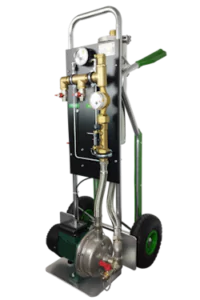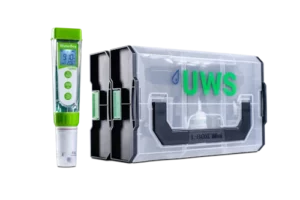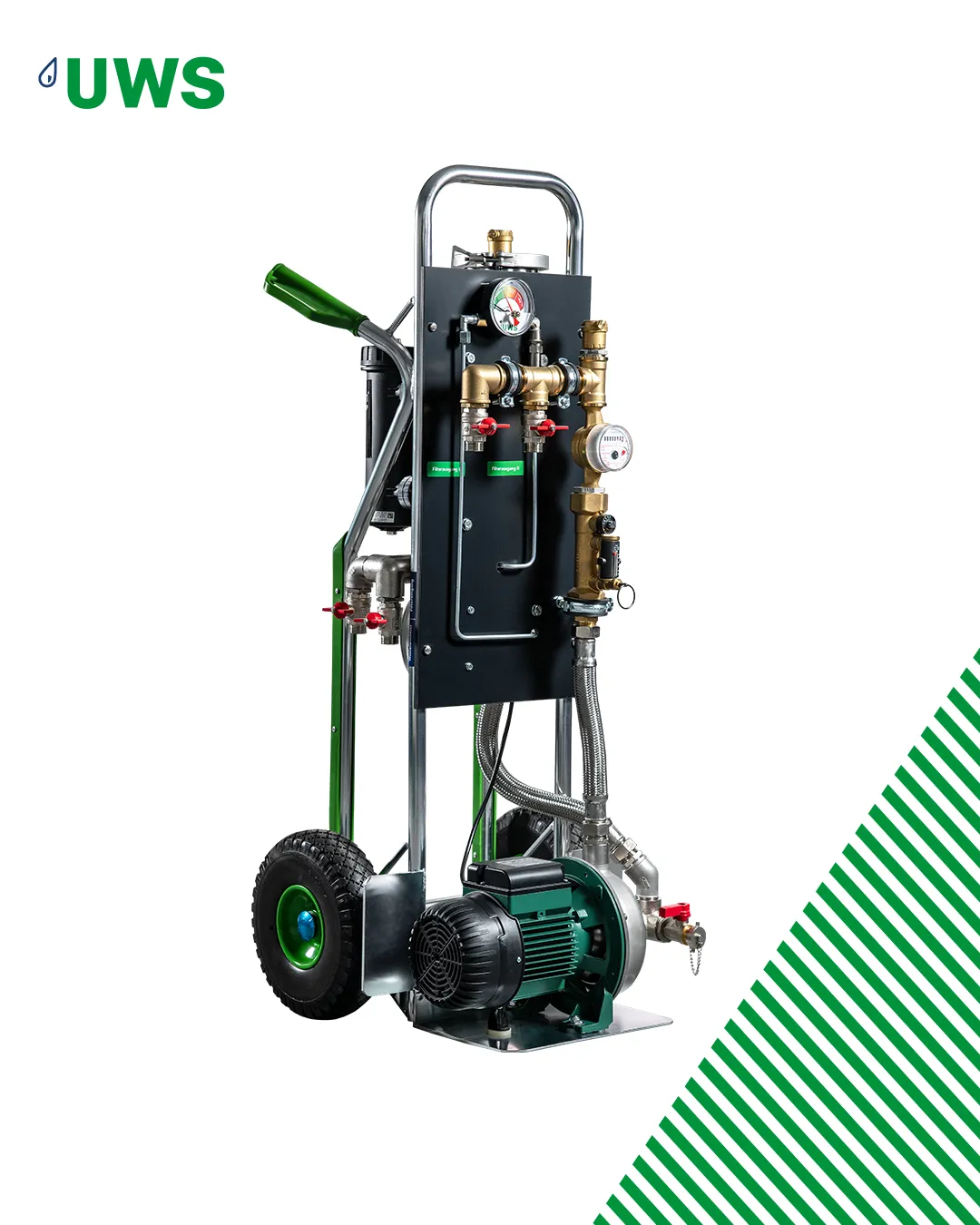When the floor slows down: Why sludged underfloor heating systems urgently need to be flushed
For greater efficiency, longer service life, and satisfied customers
They are popular, efficient, and comfortable – underfloor heating systems have long been standard in modern heating technology. But what many do not consider: these systems have an Achilles’ heel. Sludge.
More precisely: magnetite, corrosion particles, and deposits that accumulate unnoticed in the system over the years. And these not only drastically reduce heating performance, but can also damage pipes and heat generators in the long term.
Typical damage pattern: The heating runs, but it no longer gets warm
What at first seems like a hydraulic problem is often actually a question of water quality. With sludged underfloor heating systems, the return lines are noticeably cool, heating circuits remain lukewarm or fail completely. The heat generator keeps ramping up without the output arriving – a prime example of inefficient operation.
The reason: Over the years, a sometimes tough layer of magnetite, rust, and lime builds up in the narrow pipe cross-sections. This not only insulates thermally, but also narrows the cross-sections – until hardly any water circulates.
Flushing as first aid – and preventive measure
Anyone who simply lets sludged heating circuits continue to run risks permanent damage to the system – including heat generator, pump, and controls. The only solution: professional filtration.
The heating circuits are specifically filtered in order to:
- dissolve and remove deposits
- restore hydraulic flow
- improve heat transfer
- reduce air and gas formation
A professional filtration device – ideally combined with a magnetite separator – ensures that particles are not just redistributed, but really removed from the system.
Even more effect with Heaty Filtra Advanced № 2
Especially in the case of persistently sludged existing systems, the use of a mobile filtration system is worthwhile, as it reliably removes not only coarse but also the finest particles.
The device of choice: Heaty Filtra Advanced № 2
✔ Dual filter with integrated magnetite separator – reliably removes particles down to 1 µm
✔ Mobile unit – ideal for temporary use during flushing or as partial flow filtration
✔ 3.600 l/h flow rate – fully usable even in larger systems
✔ Easy operation & quick filter replacement – directly on the construction site
✔ Capacity display and sampling tap – for documentable quality assurance
In practice, this means: you can specifically filter in the heating circuit during or after flushing – and thus also remove the smallest residues from the system that would otherwise cause new deposits.

Heaty Filtra Advanced № 2
Our Heaty Filtra Advanced filtration device removes dirt, solids and other deposits from the water.To the product
Water treatment: No clean system without clean water
After flushing comes preparation. Because what good is the best flushing if “wrong” water is filled in again afterwards? Here too, the GEG in conjunction with VDI 2035 provides clear guidelines: fully demineralized and corrosion-stable fill water, adapted to the materials and volumes of the heating system.
Only with consistent water treatment can you protect the system in the long term from new sludge formation – and guarantee your customer an efficient, low-maintenance, and long-lasting heating system.
The advantages at a glance
For you as a specialist company, the combination of flushing, filtration with Heaty Filtra Advanced № 2, and standard-compliant water treatment means:
- Restoration of heating performance – even in heavily sludged circuits
- Significantly reduced supply temperatures – better for energy consumption
- Longer service life of the system – fewer consequential damages from magnetite
- Lower complaint rate – satisfied customers thanks to noticeable results
- Standard-compliant work – compliance with VDI 2035 and GEG requirements
UWS tip from practice
In existing systems, a quick pH and conductivity test is often worthwhile before flushing – for example, with our WaterBoy. This allows you to quickly determine whether water quality is the cause of the problems – and you can provide targeted advice and take action.

WaterBoy measuring case
The UWS WaterBoy measuring case contains everything the HVAC specialist needs to measure data in accordance with the VDI 2035, ÖNORM H 5195-1 and SWKI BT 102-01 standards in two L-BOXXES.To the product
Conclusion:
Flushing sludged underfloor heating systems is not an annoying extra effort, but a crucial contribution to system efficiency. Those who address the cause save not only energy but also nerves – and create a solid foundation for clean heating operation.



